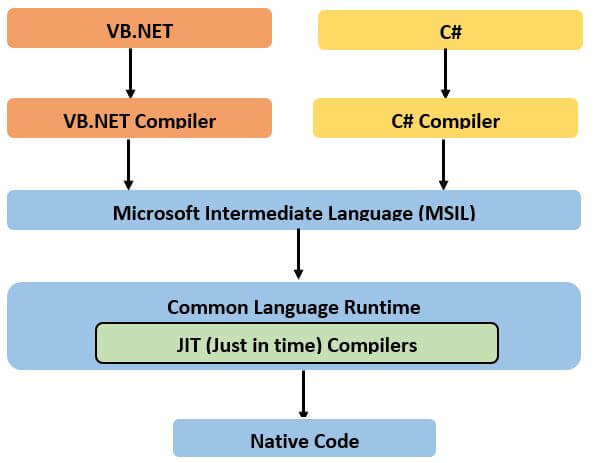
Introduction To ASP.NET
In the world of full web apps, there are many applications and frameworks that developers can choose from. Each framework has its unique features and benefits to choose from. ASP.NET is an interesting open-source web development app that was designed by Microsoft to allow programmers to build dynamic web sites and services. ASP.NET allows developers to create web apps and services. These are dynamic content-driven websites.
Benefits Of Using ASP.NET
- The very first benefit is its high speed and low operational cost. Also, it is built into a familiar Windows ecosystem.
- It requires less setup and configuration than other web development apps.
ASP.NET Different Programming Models
Given below are the ASP.NET different programming models:
Web Form: This is an event-driven programming model. It lets you build websites with drag and drop features. This model targets those developers who prefer declarative and control based programming. It is the most popular model of ASP.NET. Also, a user does not require a deep understanding of HTML, CSS or JavaScript for this model. With the basic knowledge of this model, you can start developing your apps. This model also provides rapid development of web apps and websites.
1. ASP.NET MVC
An ASP.NET web form is officially known as web forms. ASP.NET forms can be written in any programming languages which supports the Common Language Runtime, such as C# or Visual Basic. MVC helps you to manage complex systems because now you can focus on one aspect of time. But for using this model, you need a worthy knowledge of HTML, CSS and JavaScript.
2. Web Pages
These are the easiest programming models for developing ASP.NET web pages. This model enables users to combine HTML, CSS and JavaScript and Server code. It will be very easy for developers who have already worked on ASP.NET before. First of all, it is easy and fun to learn. Secondly, it is built around web pages. It is very much similar to PHP and Visual Basic. It has Full HTML, CSS and JavaScript Control.
Components Of .NET Framework
Given below are the components of .NET Framework:
1. Common Language Runtime (CLR): The .NET Framework caters to users who need a runtime atmosphere, known as Common Language Runtime (CLR). The program runs effortlessly under the “Common Language Runtime”. CLR helps in managing memory and threads. If we try to understand it in technical terms, the CLR makes space for new memory.

2. Framework Class Library (.NET): It is generic for all kinds of applications. The .NET Framework is the same for all types of library classes and methods in VB.net and C#.
3. Common Type System (CTS): The common type system guarantees that the objects are interactive. Communication among programs created in .NET compliant languages, compatibility for the type is necessary.
4. Common Language Specification (CLS): The Common Type System specifies a set of rules that needs to be followed or satisfied by all language compilers targeting CLR. It helps in cross-language inheritance and fixing.
.NET Framework Architecture
The .NET framework architecture is a programming model for the .NET platform that provides class libraries and reusable components. It is used to develop desktop applications and Windows Programs.
The basic architecture is as shown:
1. Language:
- WinForms
- ASP.NET
- ADO.NET
2. Library: It consists of a framework library.
3. CLR: It stands for Common Language Runtime.
The architecture of the .NET framework is based on the following components:
- Common Language Runtime
- Class Library
- Languages
Conclusion
The .NET platform has been developed by Microsoft. It was designed to build applications which can run Windows Platform. The .NET programming language is used to build applications that require a user to enter a value into forms. It is used to develop Web-based applications and web services. Finally, developers also have the option of choosing languages available on Microsoft’s platform. The VB.NET and C# are the best examples of efficient languages.
Recommended Articles
This is a guide to What is ASP.NET? Here we discuss the introduction, ASP.NET different programming models, components & framework architecture of .NET. You can also go through our other suggested articles to learn more –
Are you preparing for the entrance exam ?
Join our Programming Languages test series to get more practice in your preparation
View More